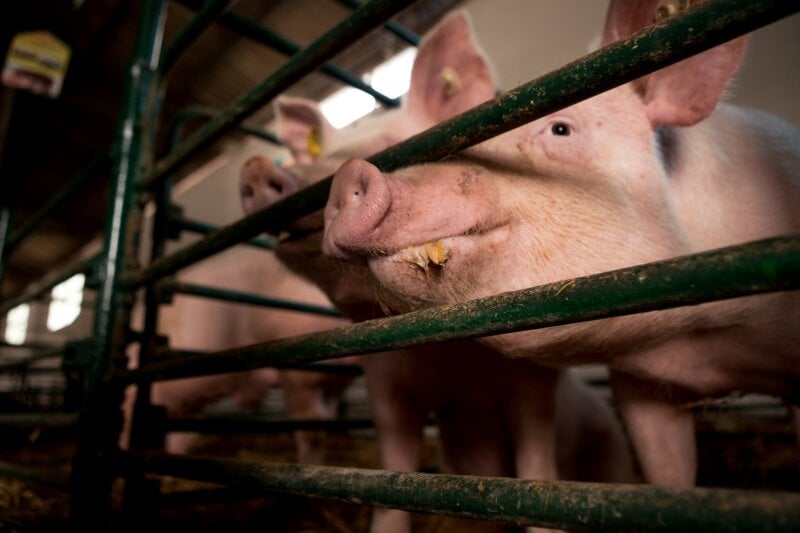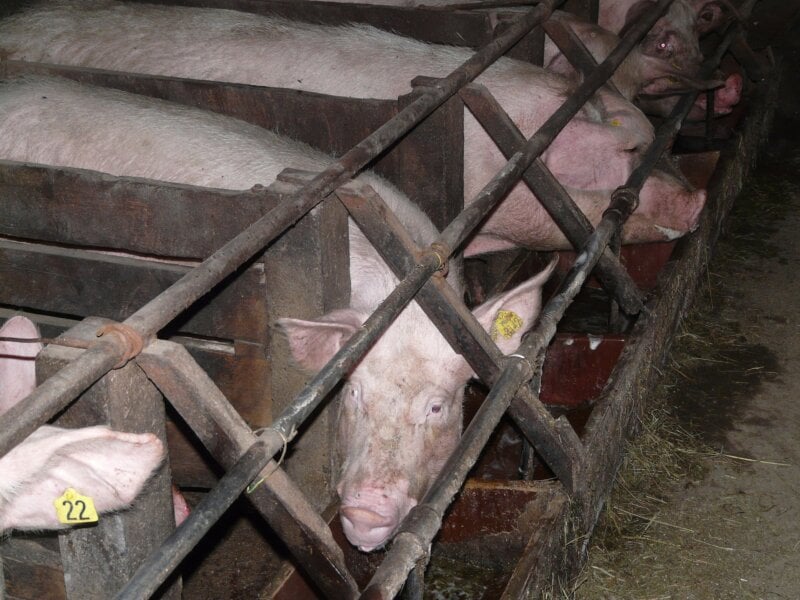Goa Prohibits Cruel Crates Used to Confine Mother Pigs, Following PETA India Appeal
Following an appeal from PETA India, the Directorate of Animal Husbandry and Veterinary Services, Government of Goa, has issued a circular directing all assistant directors and veterinary officers to prohibit the use of cruel and illegal gestation and farrowing crates in pig farming. Similar circulars have been issued by the Karnataka and Punjab governments.
The circular acknowledges that both gestation and farrowing crates fail to allow a sow to make reasonable movements and are thus cruel and illegal features of intensive pig farming. It also states that the manufacture, sale, and use of these crates cannot be permitted under Section 11(1)(e) of The Prevention of Cruelty to Animals Act, 1960. The circular refers to a communication from the Indian Council of Agricultural Research’s National Research Centre on Pig, confirming that contraptions in which pigs do not have a reasonable opportunity for movement are illegal.
Gestation crates (aka “sow stalls”) are metal cages essentially the size of a pig, with concrete or slatted floors, that leave the animals unable to turn around or even stand up without difficulty. They are used to confine pregnant pigs, who are typically transferred to farrowing crates to give birth and are kept in them until their piglets are taken away. These crates are fundamentally the same as gestation crates, except that they contain small side rooms for piglets.
Gestation and farrowing crates are so narrow that they deny mother pigs everything that’s natural and important to them, such as opportunities to forage, build a nest for their young, socialise with other pigs, and regulate their body temperature (such as by wallowing in mud). The crates also force pigs to live amid their own faeces and urine. The extreme stress and frustration caused by this severe confinement results in abnormal behaviour, such as constantly biting at the enclosure bars or continuously “chewing” the air.
Support our work








